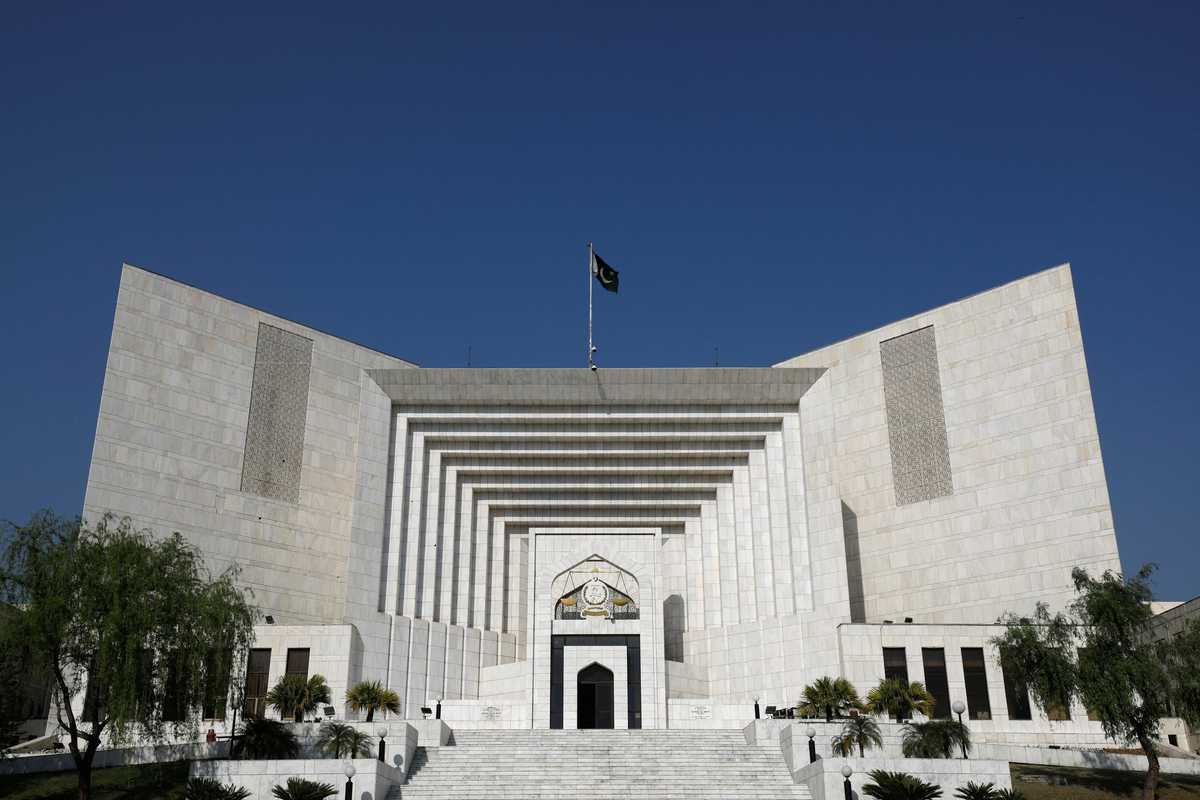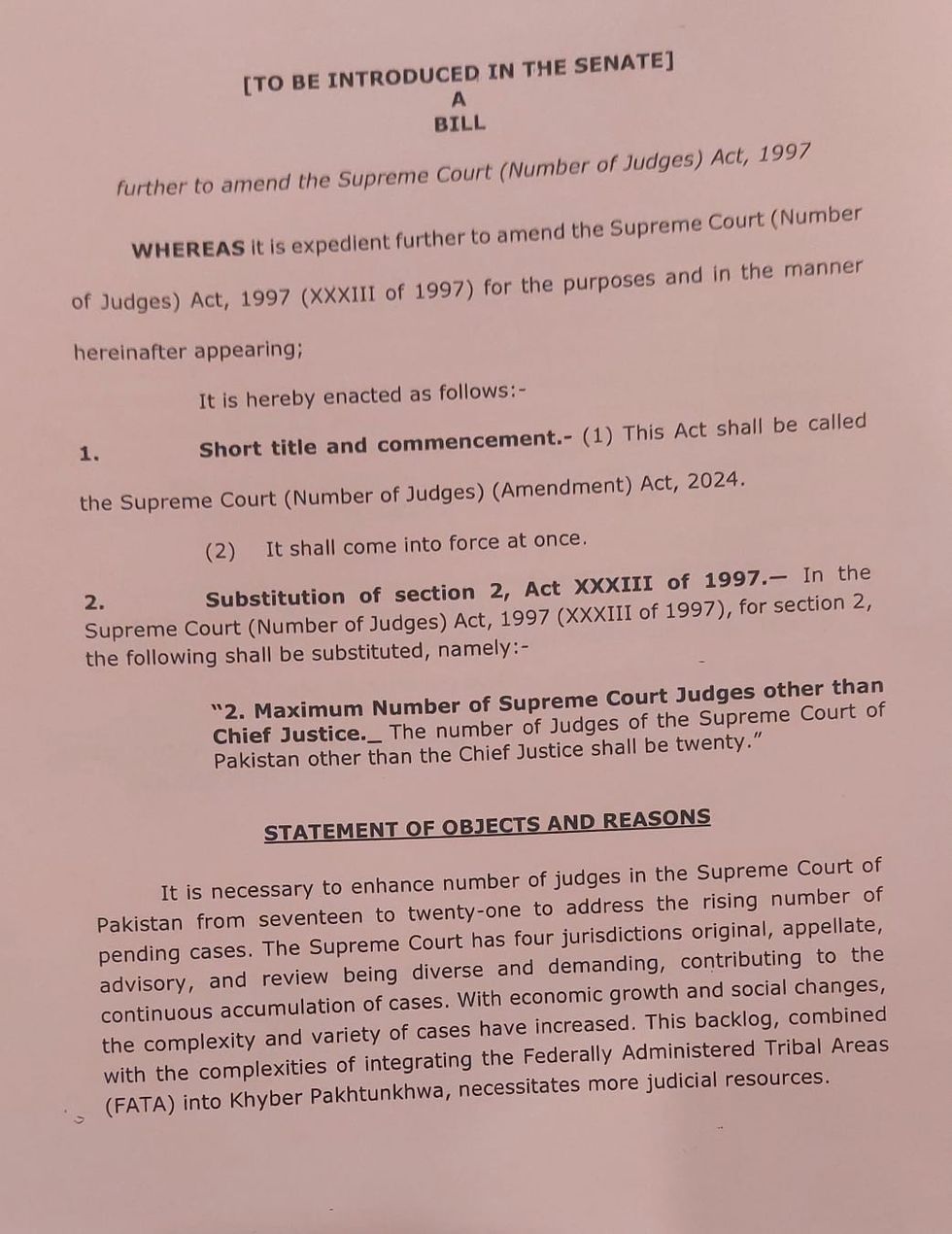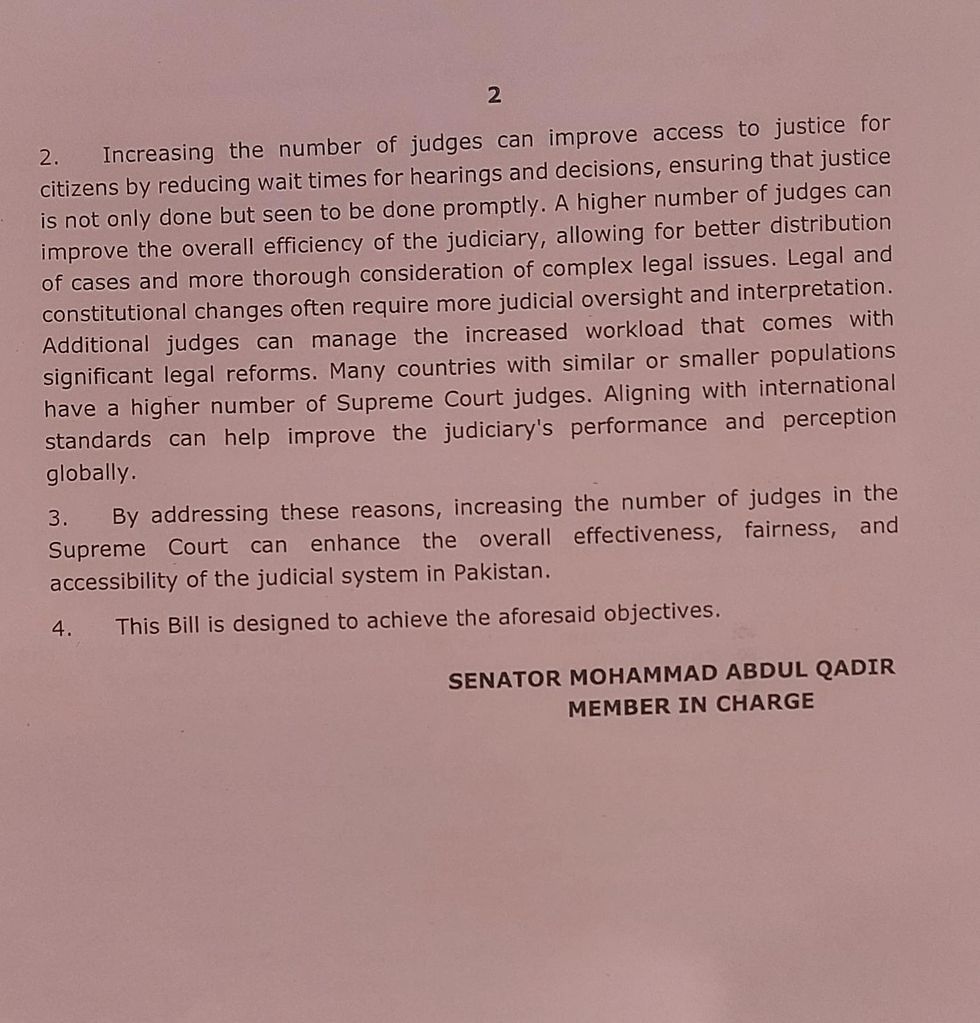Is the court being packed? Yes, says opposition. We didn't do it, says government.
Legal experts say a shortage of judges is not main problem of the apex court.

Wahid Ashraf

Supreme Court of Pakistan
Credit: Reuters
Bill to increase the number of judges in the top court has been moved by an independent Senator from Balochistan.
Five different bills related to the number of judges, how the court should operate, and what conditions should apply to judges have been presented in parliament in two days.
Pakistan’s judiciary, particularly the Supreme Court, has come under intense scrutiny recently. The number of pending cases in the Supreme Court has reached nearly 55,000, said to be an all-time high.
The government’s solution to pendency appears to be increasing the number of top court judges. However, the opposition views the move as an attempt at “court packing”, an American term which means increasing the number of judges to further partisan ends.
A day earlier, a bill was introduced in the Senate to increase the number of Supreme Court judges from 17 to 21. The bill has been referred to the Senate's Standing Committee on Law and Justice for further deliberation.

The proposed bill was moved by Balochistan’s independent Senator, Mohammad Abdul Qadir, to “address the rising number of pending cases.”
Senator Qadir argued that increasing the number of judges would enhance the overall efficiency, effectiveness, fairness, and accessibility of Pakistan’s judicial system. He emphasized that it would reduce wait times for hearings and decisions, noting that "with economic growth and social changes, the complexity and variety of cases have increased".

If the bill successfully passes through both houses of Parliament, four more judges will be added to the Supreme Court.
The Pakistan Tehreek-e-Insaf (PTI), the main opposition party in parliament, has objected to the bill, alleging that it is intended to install hand-picked judges who will deliver favorable rulings.
Speaking to Nukta, Supreme Court advocate Barrister Asad Rahim criticized the proposal, stating that “Increasing the number of judges will always be a red herring, given that our legal system’s main problem has always been an excessive institution of cases, a culture of delay, and endless appellate fora. Yet these aspects remain mostly untouched.”
Another Supreme Court lawyer, Barrister Salahuddin, tweeted, “Contrary to popular belief, our SC does not have a huge pendency issue (relatively speaking). Yes, 55,000 pending cases sounds high, but the figure has remained relatively static for many years now.”
Contrary to popular belief, our SC does not have huge pendency issue (relatively speaking)
Yes, 55,000 pending cases sounds high but figure relatively static for many years now. People also don’t realise 12,000 to 18,000 cases get decided every year.
Cases decided yearly (1/3) https://t.co/N5whwayeGB
— Salahuddin Ahmed (@SalAhmedPK) September 2, 2024
Earlier this year, in an effort to reduce the backlog of cases, the Supreme Court appointed two retired judges—Justice (retd) Tariq Masood and Justice (retd) Mazhar Alam Miankhel—as ad hoc judges for a one-year term in July.
In the last two days, five different bills regarding the number of judges in the apex court, how the court should operate, and what conditions should apply to judges have been presented. Although none of these bills were introduced by government members, the government did not oppose them either.







Comments
See what people are discussing